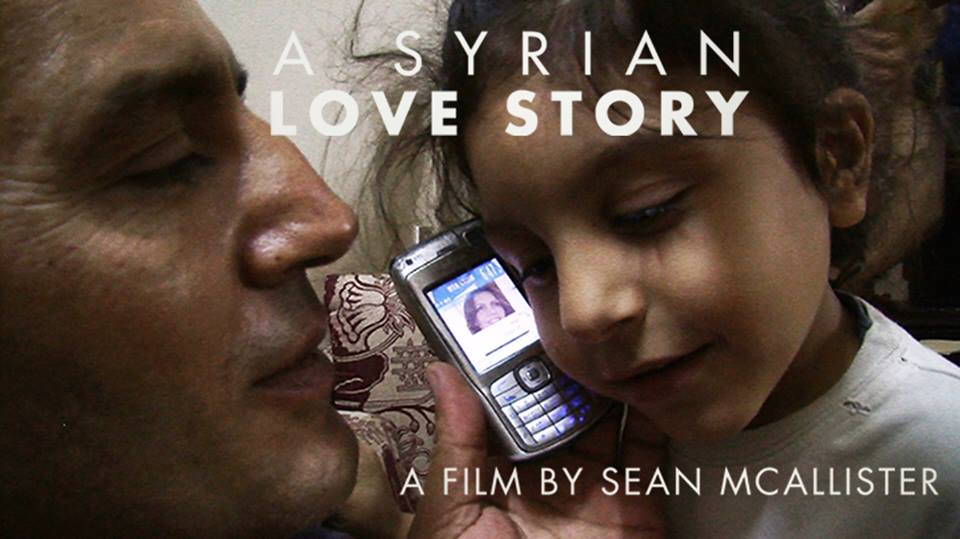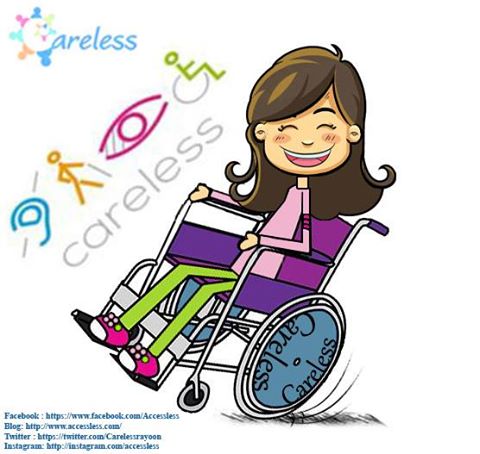Prisoners of love in Syria
In Syria, Amer and Raghda found liberation from political prison in love. But as refugees in Europe, their love became hostage to politics and guilts.

Tuesday 6 October 2015
London's British Film Institute recently hosted the preview of ‘A Syrian Love Story' a documentary by Sean McAllister who, over a period of five years, followed Amer and Raghda as their lives became intertwined when they both found themselves in a Syrian prison.
Their love story began 15 years ago behind bars when Amer, a Palestinian refugee in Syria and an active member of the leftwing of the PLO, met Raghda, a Syrian Alawite who opposed the regime. He first saw her bloodied face after being deposited in a neighbouring cell following a severe beating. They eventually started communicating through a tiny hole they had secretly made in the wall. They fell in love and, when released, got married and started a family together. But politics never allowed them to have a conventional married life. Raghda spent most of her time in prisons while Amer was left to care for their four sons.
In 2009, while McAllister was enjoying a night out at a local bar, he came across Amer who was on the phone talking about his imprisoned wife. Up until that point, McAllister had been, in his own words, living in the journalist bubble that the Assad regime wanted to confine them within, seeing and recording what the government approved. During that first encounter, Amer told McAllister: “If you want to report about the real Syria, follow me I will show you the hidden reality that the world won't get to see.”
A few months before the wave of revolutions hit the Arab world, McAllister's camera began to follow Amer and his four sons – at the time, Raghda was a political prisoner and Amer was left to care for the young children alone. Fadi, Shadi, Kaka and Bob had spent their whole lives watching either their father or mother go to prison for their political beliefs. During the filming the family had to move constantly out of fear, as Raghda was well known to the security services and her family were under constant surveillance. Bob, who was three years old when filming began, did not understand why his mother was not with them and the closest he got to her was a phone call. Kaka, the middle child, quiet, who is considerate and mature, vowed to follow his parents to prison for the sake of freedom, whereas Shadi, the eldest, seemed to be indifferent to his situation, and was even in love with a girl who is pro-Assad and against anyone who opposed his rule. The couple break up when Shadi's girlfriend gets engaged to someone else. At the end of the documentary, we learn she died during the conflict when, soon after her wedding, a bomb struck her house.
This intimate family portrait helps the outsider to understand why people are literally dying for change in the Arab world. Once the revolution started, Amer saw it as an opportunity to free Raghda from prison and took part in the protests. But he had to change houses and moved to the Yarmouk camp in Damascus, which was besieged by the Assad regime, then brutally attacked by ISIS.
Under international pressure, the Syrian government released some political prisoners, including Raghda. However, Sean McAllister himself got arrested for filming and the political pressure on all activists intensified, especially Amer and Raghda, who were seen on the footage captured by McAllister and stored on his laptop and camera which were confiscated by Syrian intelligence.
Out of fear ,the family fled to Lebanon, where cracks in Amer and Raghda's relationship began to surface and grow. Feeling torn and desperate to join the big change that was sweeping Syria, Raghda could no longer just stay and watch from afar and, so, she returned to Syria, leaving Amer and the children to struggle to eek out an existence. Amer informed the London audience during the Q&A session that there were days when he had to rely on local Lebanese churches for food. Being Palestinan meant that he could not get a job, his children were not accepted into local schools and, even when he applied to the UN for political asylum, he was told that without Raghda he stood no chance, as he was not Syrian.
After three months, Raghda returned and, finally, they were approved by the UN and were taken to France, where they received political asylum in the sleepy town of Albi, watching the revolution from afar, waiting for Assad to fall.
However, contrary to the idea that once you are out of the conflict zone you are somehow safe and happy, in exile, the family began to fall apart. Raghda's mental heath suffered and she even attempted suicide. Amer started an affair after he failed to find the love that once existed in a prison cell. The irony of the documentary is that love was thriving in a prison cell but died in the country of love and freedom. The audience see their new life in France develop but the war is now between them. In finding the freedom they fought so hard for, their relationship begins to fall apart.
At the end of the 76 minutes documentary, the audience witnessed how the once pro-revolutionary Kaka question the benefit that the call for change brought to Syria, while Bob, who is eight now, declares he is ‘French' and no longer remembers his previous life in Syria. In fact, when McAllister asedk Bob about his house in Tartous, Syria, he had no collection of a place they once loved and called home – he even confused it with Tripoli in Lebanon.
A Syrian Love Story is a documentary that McAllister regards as “the most special film I have made to date.” One that he was not even sure it would ever see the light of day, as he wasn't commissioned or supported to make the film until quite late in the process, McAllister had one objective for making the documentary: to allow people to understand the Syrian conflict without all the political jargon. “I wanted the average Hull factory worker to see the revolution without all the politics…just as a simple story of ordinary human beings,” McAllister informed the audience, who gave him and Amer's family a standing ovation for a simple but thought-provoking tale of a family's journey of hope, dreams and despair: for the revolution, their homeland and each other.
A SYRIAN LOVE STORY by Sean McAllister
Twitter: @SyrianLoveStory #ASyrianLoveStory
Facebook: www.facebook.com/ASyrianLoveStoryFilm
Website: www.asyrianlovestory.com
TECHNICAL DETAILS
Duration: 76 mins
Production country: United Kingdom
Languages: English, Arabic, French
Subtitles: English
Production year: 2015
HD, Colour
IN CINEMAS ACROSS THE UK AND ON VOD FROM 18TH SEPTEMBER


